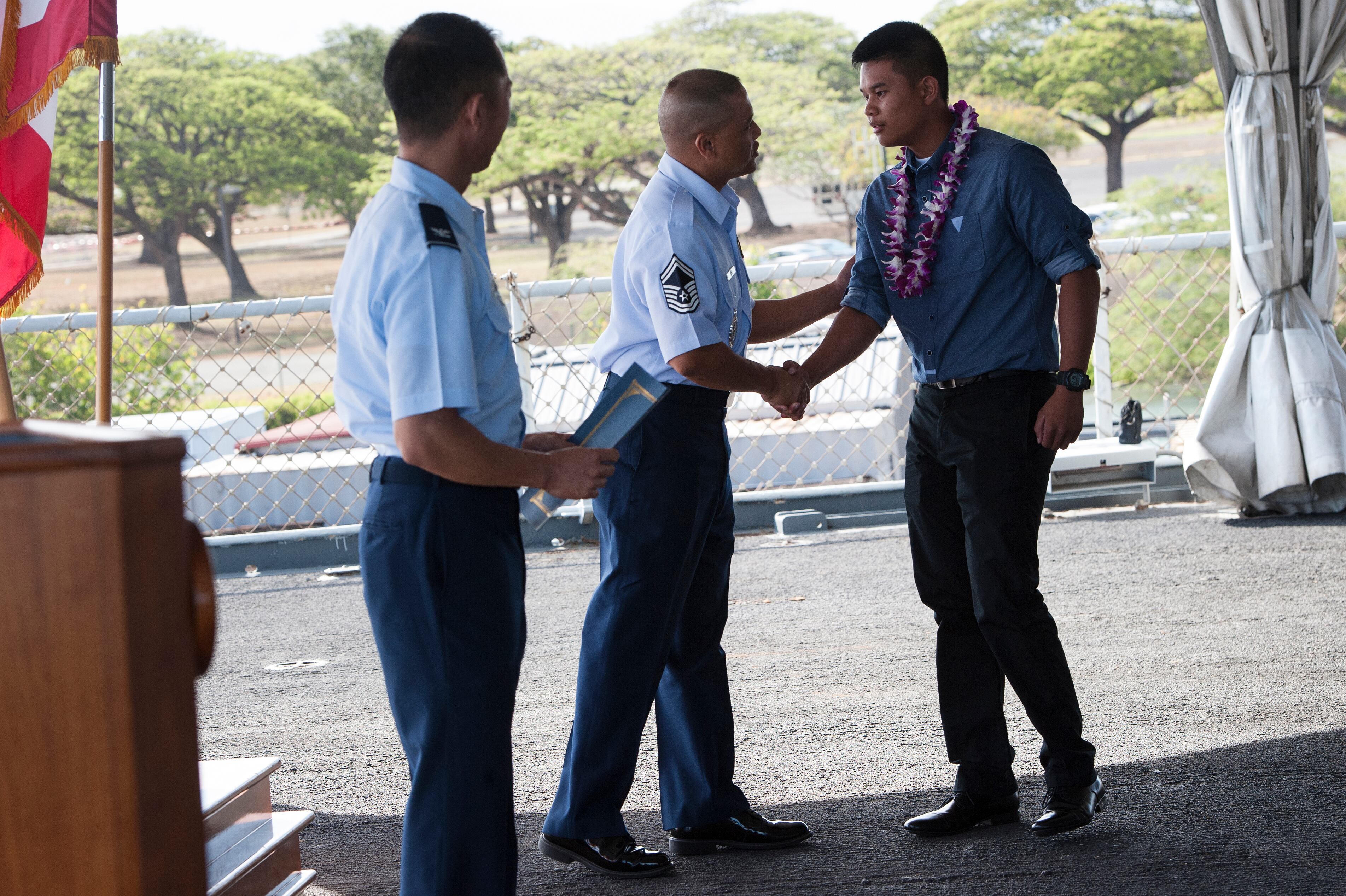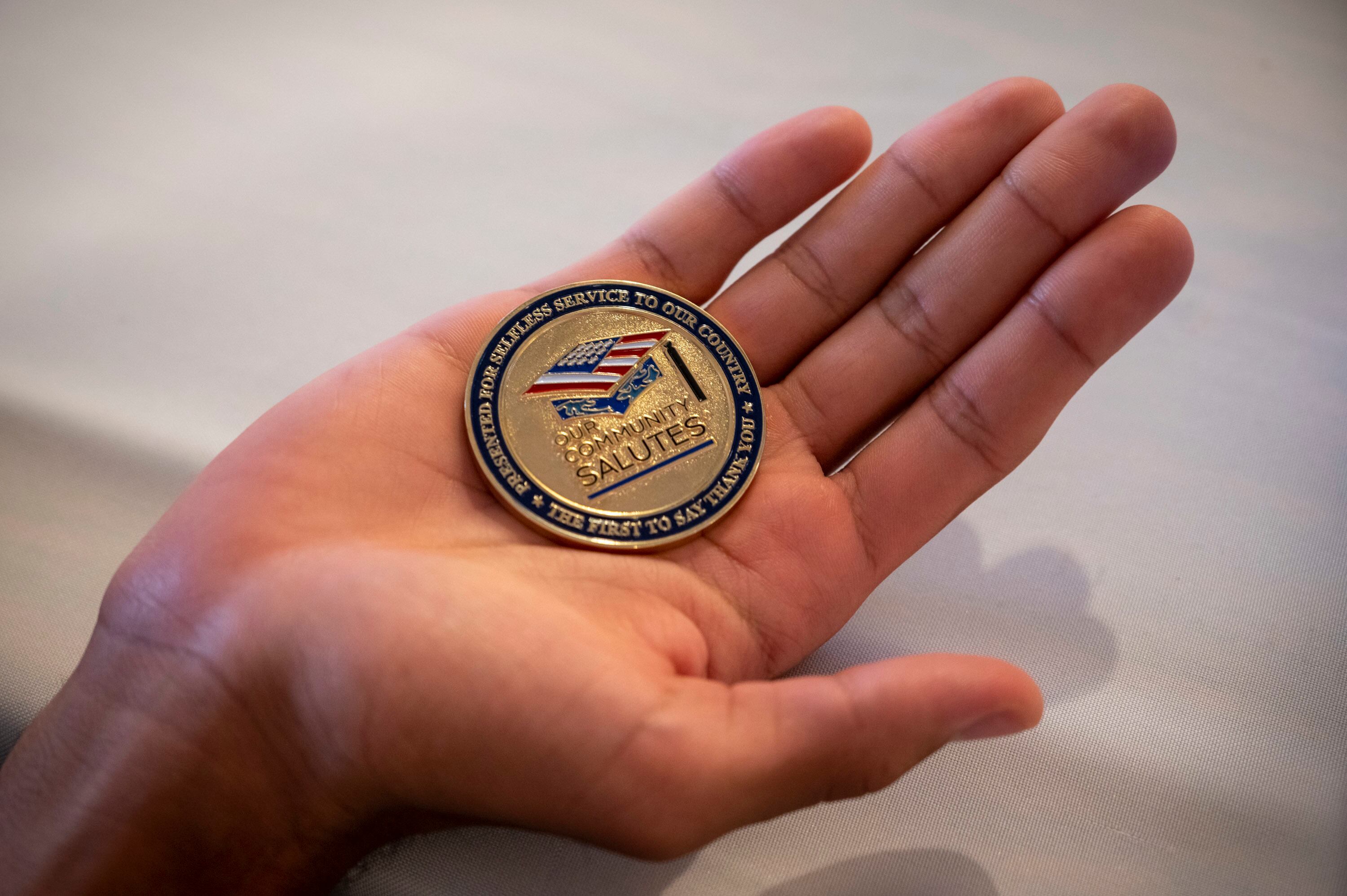Nearly 15 years ago, Dr. Kenneth Hartman was serving on his local school board in Cherry Hill, New Jersey and noticed something that didn’t sit quite right with him.
High school students in the area were getting all kinds of accolades from the local community when they were accepted by top-flight colleges. Future college athletes got coverage in local news on “signing day” when they committed to play their sport at a top university.
But the teenagers who raised their right hand to enlist straight out of high school and serve their country? They got nothing.
“I discovered at the school board that the communities don’t honor these kids,” Hartman said. “I really do think the fact is no principal ever got promoted to superintendent based on how many kids enlisted.”
The Army, Navy and Air Force all fell short of their recruiting goals last year. That was the second year in a row for the Army. It was the first time since 1999 that the Air Force missed its recruiting target. Senior leaders in each of the military branches have noted the growing civil-military divide as fewer of the nation’s youth choose military service.
Hartman talked with some of the parents who were sending their sons and daughters off, many headed for war zones at the time. They felt like a kind of second-class group.
Many had little or no familiarity with the military system, he said. They didn’t know what to expect during basic training, holidays and when their kids went on deployment.
The former Army officer figured he could do something about this gap.
Hartman started small, he organized a banquet for all the recent enlistees and their parents in Camden County, New Jersey in 2009. He reached out to veterans, military retirees and recruiters, business leaders and educators for support. He then formed a nonprofit and named it Our Community Salutes.
Shortly after that first ceremony, people in Pittsburgh, Pennsylvania reached out to learn how Hartman had organized the event. In 2010, the organization held two events. Since then, the nonprofit has honored 250,000 new enlistees and their families in nearly 600 ceremonies across 31 states, according to OCS data.
In 2011, Patrick Covaleskie was an Air Force poolee — an unofficial term used to refer to those who have signed up to join the military, but have yet to leave for basic training — when his recruiter told him about an OCS ceremony. His parents were skittish about him joining, especially during the post-9/11 war period. They didn’t know what to expect.

When he arrived the event was filled with families, community members, recruiters and local veterans.
“A lot of high schools don’t do much to recognize people joining the military,” Covaleskie said. “When hundreds of people you don’t know attend a ceremony in your honor you really feel empowered.”
Airman 1st Class Jade Gibson had military members in her family, but none who had joined the Air Force. Fortunately, her parents helped her find currently serving women in the Air Force to talk her through some of what she would face before she headed off to basic training earlier this year.
But while waiting to join the ranks, it was her recruiter who told her she should go to an OCS banquet where she’d meet other poolees.
Gibson and the new enlistees arrived and entered a room filled with veterans from all the services. Each of them encouraged the new recruits, and told them how proud they were that they’d decided to join.
“They kept telling us what to expect and how important it is that we’re joining right now, it was not something to take lightly and we had people supporting us back in the community.”
That helped as she faced her own challenges in basic training.
“When it got hard, I just kept thinking back to everybody back home and everybody supporting me,” she said.
A few years after OCS began, Hilari Luck saw her first of three sons leave home for the Air Force. With her eldest son, who enlisted a decade ago, she was on her own. The West Deptford, New Jersey mother didn’t know about OCS and navigated the life of a new military parent as best she could.
But when her middle son joined two years later, she received an invitation to an OCS banquet.
“We had support, we had encouragement from the outside looking in,” Luck said. “We had no idea really what it was. It doesn’t just inspire the young people that are there, it really does touch the adults that are there.”
By the time her youngest son joined the service in 2022, she knew the process and was already helping other new military families.
“A lot of these people are making the choices to join straight out of high school and no one is supporting them, no one is celebrating them,” Luck said. “We as a community should be doing it, not expecting someone else to be doing it.”
She’s since joined OCS as a volunteer, connecting with parents and answering questions. She encourages the parents and the whole family to support their service member through the entire process leading up to and during the first years of service.

“If you don’t have someone you can talk to about that you can feel like you’re missing something rather than a part of something,” Luck said.
Army Brig. Gen. Kelly Dickerson knows firsthand what that experience can be like. He told Army Times that when he first enlisted 35 years ago the only people who knew he was headed to basic training were himself and his mother. And he didn’t tell her until right before being picked up by the recruiter.
Dickerson, is a vice president at PayPal in his civilian job and serves as the deputy commanding general of the U.S. Army Reserve Command while in uniform.
He’s spoken at OCS events, using himself as an example. He enlisted and then became an officer. Since then he has risen in both his civilian and military roles to high positions. Each complements the other, he said.
“I don’t think I’d be an officer at a global 500 company if I didn’t join the Army,” Dickerson said.
Dickerson has looked at the rows of new parents, probably worried or even scared, asking themselves: what has my son, daughter, husband or wife done?
He reassures them, “They’ve done something amazing.”
The one star commended Hartman’s work, which he said has opened doors in communities across the country that previously saw little military engagement.
By connecting parents with OCS and the military community at large, Dickerson sees those parents becoming advocates in their communities for others who might not know much about the military.
“I think this connection is extremely important, we need to include these extended family members,” Dickerson said.
Todd South has written about crime, courts, government and the military for multiple publications since 2004 and was named a 2014 Pulitzer finalist for a co-written project on witness intimidation. Todd is a Marine veteran of the Iraq War.




